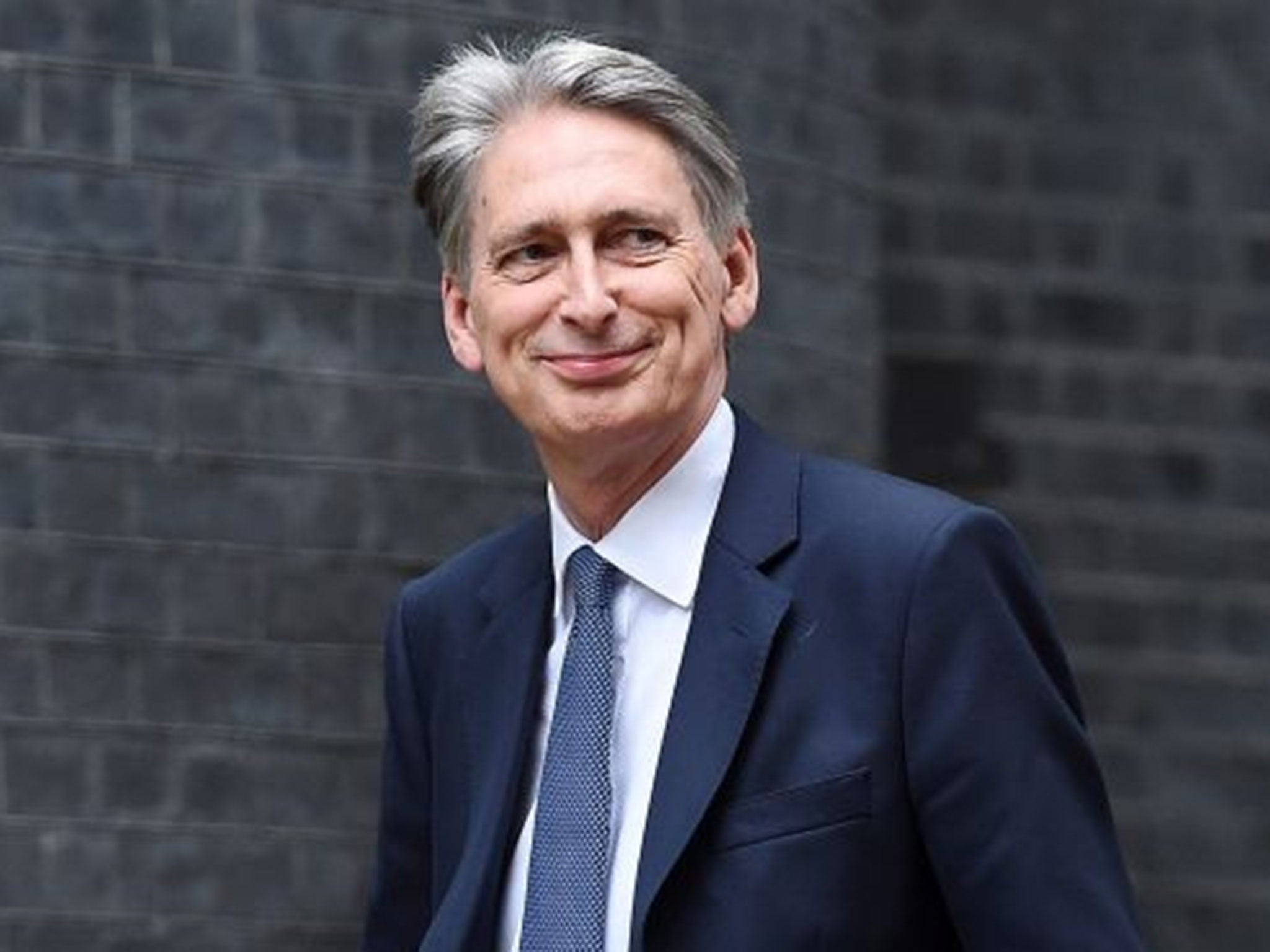Philip Hammond pledges billions of pounds funding to organisations to plug post-Brexit shortfall
The Treasury is hoping to improve growth prospects by allowing projects which might otherwise have been shelved, to go ahead

Your support helps us to tell the story
From reproductive rights to climate change to Big Tech, The Independent is on the ground when the story is developing. Whether it's investigating the financials of Elon Musk's pro-Trump PAC or producing our latest documentary, 'The A Word', which shines a light on the American women fighting for reproductive rights, we know how important it is to parse out the facts from the messaging.
At such a critical moment in US history, we need reporters on the ground. Your donation allows us to keep sending journalists to speak to both sides of the story.
The Independent is trusted by Americans across the entire political spectrum. And unlike many other quality news outlets, we choose not to lock Americans out of our reporting and analysis with paywalls. We believe quality journalism should be available to everyone, paid for by those who can afford it.
Your support makes all the difference.The Government has moved to safeguard billions of pounds of EU funding for universities, business, farmers and run-down areas after Brexit.
Philip Hammond, the Chancellor, tried to allay fears that thousands of organisations which rely on EU funds could be left high and dry when the UK leaves the EU. His pledge covers about £4.6bn a year from the Common Agricultural Policy, regional and social funds for poor regions and about £1.5bn a year for business and universities, including scientific and medical research.
While the Treasury guarantee will be welcomed by the groups affected, it lasts only until 2020. There could be a scramble for funding after that unless the guarantee is extended.
The pledge highlights the costs of the Brexit despite highly contested claims by Leave campaigners during the referendum that quitting the EU would save £350m a week— £18.2bn a year.
The underwriting will also worsen the public finances, which face a hit from the economic slowdown expected after the Brexit vote. Theresa May has already abandoned George Osborne’s plan to run a budget surplus by 2020 and Mr Hammond is expected to announce a hike in borrowing in his Autumn Statement in November or December.
Tim Farron, the Liberal Democrat leader, said: “It is complete brass neck from the Treasury to try and spin that matching the funding that businesses, scientists and farmers currently receive from Europe is somehow a ‘benefit’.
“What happens after 2020? Where is the extra £350m a week for the NHS that the Leave campaign promised? There must also now be assurances that this money will cover everything that is currently done and not become a way for ministers to pick and choose pet projects in the face of an increasingly turbulent post-referendum economy.”
However, the Treasury hopes its guarantees will improve growth prospects by allowing projects to boost economic development that might have been shelved to go ahead.
All structural and investment fund projects signed before the Autumn Statement will be fully funded, even when they continue after Brexit, which could happen in 2019. The Treasury will consider funding schemes agreed after the statement and while the UK remains in the EU.
Mr Hammond said universities and businesses should continue to bid for competitive EU funds while the UK remains a member. The Treasury will continue to finance them after Brexit. Existing farm support payments will be safeguarded until 2020 as part of the transition to a new UK system.
The Chancellor said: “The UK will continue to have the all of the rights, obligations and benefits that membership brings, including receiving European funding, up until the point we leave the EU. We recognise that many organisations across the UK which are in receipt of EU funding, or expect to start receiving funding, want reassurance about the flow of funding they will receive.”
He added: “The Government will match the current level of agricultural funding until 2020, providing certainty to our agricultural community, who play a vital role in our country. We are determined to ensure that people have stability and certainty in the period leading up to our departure from the EU and that we use the opportunities that departure presents to determine our own priorities.”
The headaches facing the Government over Brexit were also illustrated when Liam Fox, the International Trade Secretary, withdrew a statement which implied that the UK would leave the European single market. Mr Fox, who campaigned for Leave and is believed to want a “hard Brexit”, appeared to jump the gun on how a new trading relationship with the EU might work.
Mrs May, who is on holiday in Switzerland, has insisted that all options are open and has not yet worked out her negotiating goals.
Mr Fox’s department said: “While the outcome of future negotiations can’t be predicted, nothing changes until the UK has exited from the European single market. This won’t happen until at least two years after the UK has invoked Article 50, which formally withdraws the UK from the EU. Even then exporters will only be affected if the UK exits the European single market as well as the EU. Until then: goods and people will continue to move freely between the UK and other EU member states; the UK is still considered part of the EU when trading with countries that have a trade deal with the EU.”
It added: “If the UK does exit the European single market, it will be governed by World Trade Organization (WTO) rules until any new trade deals are negotiated.”
The statement later disappeared from the Department for International Trade’s website. A spokeswoman said that it had been published “in error”.
Join our commenting forum
Join thought-provoking conversations, follow other Independent readers and see their replies
Comments